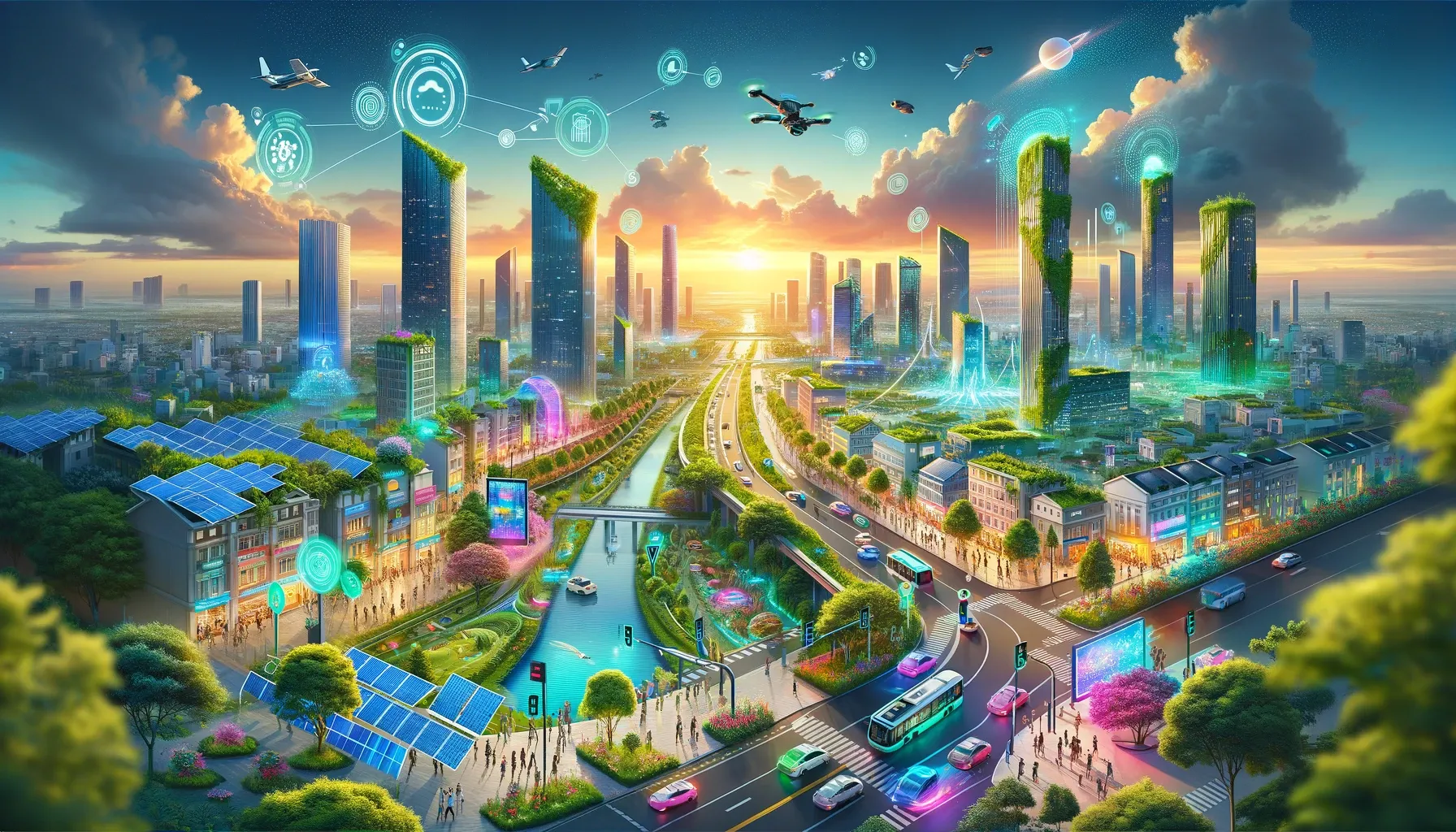Vietnam's Leap into the Future: The Emergence of Smart Cities Across the Nation
In an era of rapid urbanization and technological advancement, Vietnam is taking significant strides towards creating sustainable and intelligent urban spaces, a visionary step towards modernization and improved quality of life. Vietnam is undergoing a transformational phase in urban development, embracing the concept of smart cities to address the challenges

In an era of rapid urbanization and technological advancement, Vietnam is taking significant strides towards creating sustainable and intelligent urban spaces, a visionary step towards modernization and improved quality of life.
Vietnam is undergoing a transformational phase in urban development, embracing the concept of smart cities to address the challenges of rapid urbanization and to enhance the living standards of its citizens. Recent months have seen a flurry of activity in this arena, with multiple cities across the country initiating ambitious projects to integrate cutting-edge technology into their urban fabric. Here's an in-depth look at Vietnam's journey towards becoming a hub of smart cities.
ASEAN Smart Cities Network: A Regional Collaboration
In a notable move towards regional cooperation, Hanoi, Ho Chi Minh City, and Da Nang have joined the ASEAN Smart Cities Network (ASCN). Initiated by Singapore, the ASCN aims to facilitate collaboration in smart city development for sustainable growth. This platform focuses on digital infrastructure enhancement and connectivity across the region, with an emphasis on areas like electronic payments, energy, and water conservation. The network represents a concerted effort towards urban innovation and a shared vision for the future of cities in Southeast Asia.
Widespread Adoption of Smart City Initiatives
A recent development has revealed that 41 out of Vietnam's 63 centrally administered cities and provinces are actively developing smart city plans. These initiatives include the establishment of smart city services and the construction of intelligent city management centers. This widespread adoption reflects a national commitment to leveraging technology for urban improvement and sustainability.
Green Growth and Sustainable Development
Vietnam is not only focusing on the technological aspects of smart cities but also emphasizing the need for green growth. The government has launched initiatives like the urban green growth development plan and smart city strategy, aiming to create urban spaces that minimize resource use and pollution. Key areas like energy, transport, and waste management are being targeted to develop cities that are both intelligent and environmentally friendly. Ho Chi Minh City, for instance, has seen a significant rise in rooftop solar installations, demonstrating a commitment to renewable energy.
Flagship Projects and Collaborations
Prominent groups like Tan Hoang Minh and Vingroup are spearheading major smart city projects. Tan Hoang Minh is incorporating AI and green technologies in its developments, while Vingroup's Vinhomes Smart City in Hanoi is being modeled after successful international smart urban areas. The project, which focuses on smart security, management, community, and home, is set to deliver its first building soon, marking a milestone in Vietnam's smart city journey.
The Vision for Ho Chi Minh City: A Financial and Tech Hub
Ho Chi Minh City is ambitiously planning to establish Thủ Đức City, which will amalgamate areas from District 2, District 9, and Thủ Đức District. This new city is envisioned as a financial hub and a center for research and development, potentially contributing significantly to both the city's and the nation's economic output.
As Vietnam continues to make strides in smart city development, it sets an example for other nations in the region. The integration of technology, environmental sustainability, and collaborative efforts across various cities is a testament to the country's commitment to embracing the digital era. These initiatives not only aim to enhance the quality of urban living but also position Vietnam as a leader in smart urban development in Southeast Asia.
Vietnam's smart city development represents a multifaceted approach, addressing core areas such as energy efficiency, smart transportation, sustainable waste management, and air quality improvement. Innovations like intelligent traffic management systems in Hanoi and solar-powered street lighting are just a few examples of how technology is being harnessed to create more livable and efficient urban environments.
The focus on creating green and smart cities aligns with Vietnam's broader objectives of sustainable development and environmental conservation. The government's proactive policies and the involvement of both domestic and international partners in these projects are crucial in realizing these ambitious goals.
Moreover, the development of smart cities in Vietnam is not limited to metropolitan areas. Smaller cities and provinces are also part of this transformative journey, ensuring a balanced and inclusive approach to urban development across the country. This is evident in initiatives like the AI center in Quy Nhon by FPT Corporation, which aims to prepare human resources for future smart city projects in the province. Such initiatives highlight the role of education and skill development in fostering a tech-savvy workforce capable of driving the smart city agenda forward.
As Vietnam embarks on this path of smart urbanization, challenges such as integrating advanced technology with existing infrastructure, ensuring data security, and fostering public-private partnerships remain. However, the nation's strategic focus on smart city development, combined with its dynamic workforce and political stability, positions it well to overcome these hurdles and lead the way in innovative urban solutions.
In conclusion, Vietnam's commitment to developing smart cities marks a significant step towards a future where technology and sustainability coexist harmoniously. With its eyes set on becoming a green economy and achieving the Sustainable Development Goals, Vietnam's smart city initiatives are not just about urban transformation but also about charting a new course for the nation's overall growth and development. The journey of Vietnam's cities transitioning into smart, sustainable hubs offers valuable insights and inspiration for countries around the world striving for a smarter and more sustainable future.




